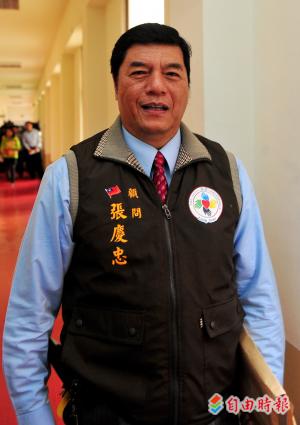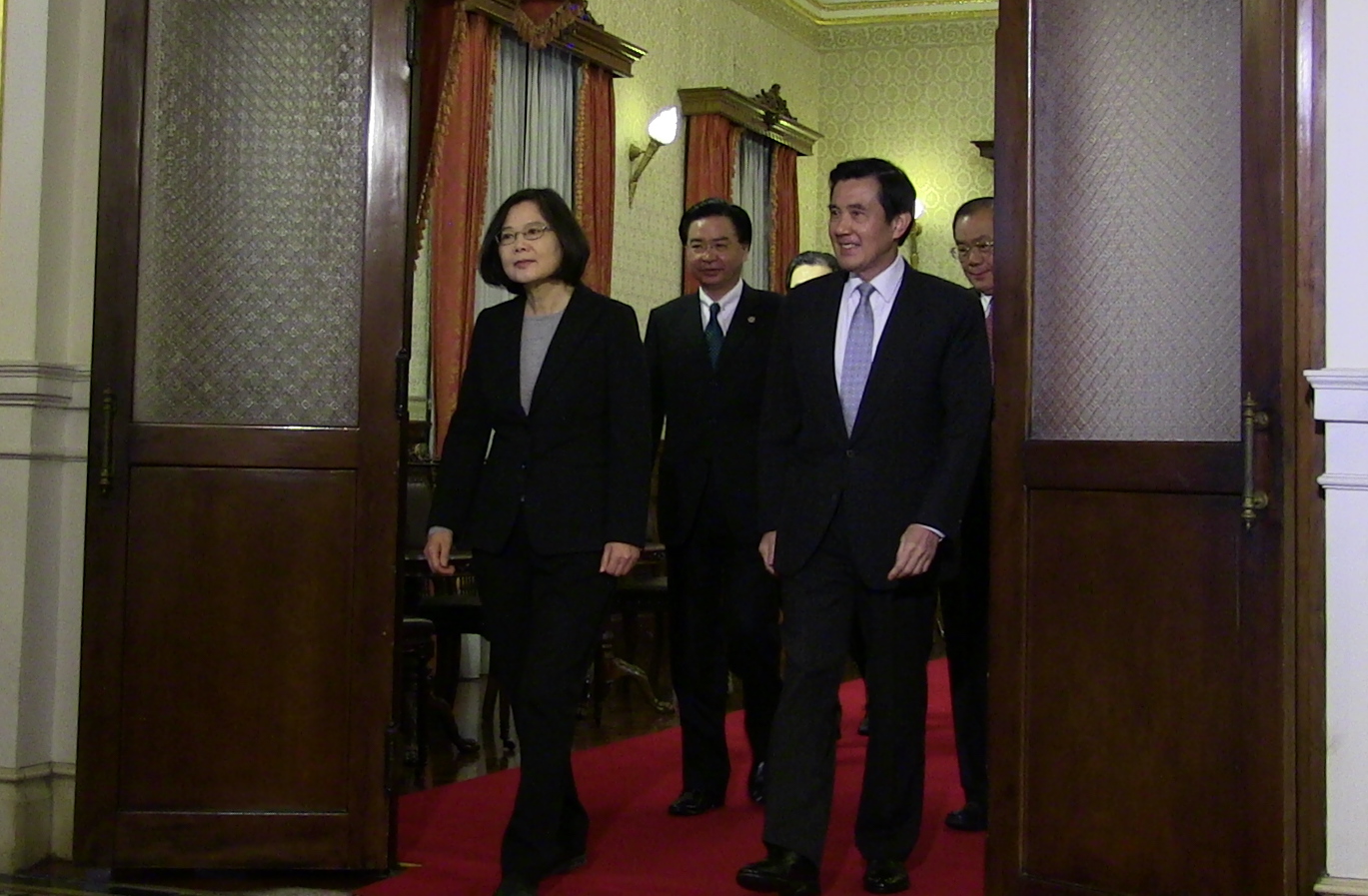by Brian Hioe
語言:
English
Photo Credit: WikiCommons
WITH THE incoming Tsai administration less than fifty days away from office, it is now to be seen as to whether the DPP lives up to its campaign promises. Of course, concerning cross-strait relations, it will be seen as to whether the DPP fulfills the demand of Taiwanese civil society from 2014’s Sunflower Movement to the present calling for transparency and openness in cross-strait relations conducted between Taiwan and China.
A draft bill to provide oversight regarding cross-strait relations is likely to be passed in the coming week, given the DPP-controlled legislature. The bill allows for intervention by legislature into cross-strait negotiations before, during, and after negotiations and for the Executive Yuan to report to the legislature plans plans for negotiations and possible implications.
The idea would be to avoid a repeat of the series of events which led up to the Sunflower Movement, in which the CSSTA trade agreement with China was passed into law without any discussion of the bill in legislature, prompting the spontaneous occupation of the Legislative Yuan by student activists. The bill goes back to KMT legislative speaker Wang Jinpyng promising to postpone the CSSTA until legislation to monitor all future cross-strait agreements had been passed, which was the concession that led to the withdrawal of the student occupation from the Legislative Yuan.
The draft bill had previously seen controversy as to whether “cross-strait” would be used in the wording of the bill, for fear that this would be too controversial regarding the issue of whether negotiations between Taiwan and China are negotiations between two nations.
The final version of the draft bill did not include a controversial clause which would have stipulated that trade agreements which legislature failed to discuss within a specified timeframe would automatically be ratified, which was the logic used to justify pushing the CSSTA trade agreement through legislature without discussion in March 2014. Indeed, if that had been so, the oversight bill would not have differed substantially from the measures that had existed before. The clause was dubbed the “Chang Ching-chung clause,” Chang being the KMT legislator who had declared the CSSTA passed in March 2014 in under thirty seconds. The clause had raised much anxiety about the draft bill.
 Chang Ching-chung of the KMT. Photo credit: Liberty Times
Chang Ching-chung of the KMT. Photo credit: Liberty Times
But skepticism remains among members of civil society as to the strength of the bill. The DPP has, for its part, maintained that the draft bill is sufficiently powerful to prevent repeats of the CSSTA controversy. DPP caucus whip Chen Ting-fei has claimed, for example, that the bill is the DPP’s “strongest-ever bill.” DPP caucus whip Ker Chien-Ming has also attempted to assure skeptics that the bill would not only maintain transparency where cross-strait negotiations is concerned, but be a measure for the public to have its say in cross-strait relations.
Rather than simply leave politics to the politicians, it seems only natural for the public to have its say in cross-strait relations. After all, cross-strait relations affects all of Taiwan and has serious ramifications where Taiwan’s existence as a de facto independent country is concerned. Likewise, in a democracy, it need be that politicians are answerable to the voters who put them into office.
But we may note that with the present cross-strait oversight bill, whether or not the public is actually able to have oversight over cross-strait negotiations depends on whether legislature decides to intervene. And as legislature is currently dominated by the DPP, if the DPP decides not to intervene on an issue, it can still shrug off the views of the public.
It has seemed unreasonable to some that Taiwanese civil society activists and others have so quickly raised concerns about the DPP “KMT-izing” or otherwise monopolizing political power in the manner of the KMT, seeing as the DPP never before controlled legislature in Taiwanese history, much less held control over the presidency and legislature at the same time. This is seen as being turning on the DPP in a premature manner when the KMT still exists and is the real political threat to Taiwan.
However, the real issue at stake here is that if the DPP does capitulate, there is no other “pro-Taiwan” party in legislature sufficiently strong enough to call it to account. The New Power Party, for example, is still too small to actually have any way of threatening the DPP. Indeed, the NPP has stated that it is still deliberating as to what its stance on the cross-strait oversight bill will be. Even if the NPP is sometimes held up as representative of the Sunflower Movement as a party formed by key figures of the Sunflower Movement and in that way expressive of its demands for clear and transparent cross-strait relations, the NPP would seem to be less than willing to directly go against the DPP at present. This would be the difficulty of the fact that there is only one powerful “pro-Taiwan” party in legislature.
Tsai Ing-Wen has obliquely indicated that she probably will seek some arrangement with Beijing during her tenure in office, but even if Tsai probably will not be so intent on selling out Taiwan to China as a KMT president would be, this may still be dangerous. For example, an open and public platform of Tsai during elections was that she plans to sign the RCEP free trade agreement with China, which is also pushed for by the KMT. Where signing free trade agreements was concerned, there was virtually no difference between Tsai’s platform and KMT presidential candidate Eric Chu’s, as one can see by comparing their platforms side-by-side. Thus, oversight over the DPP is also needed in addition to oversight regarding cross-strait mechanisms.
Indeed, although an oversight bill regarding cross-strait relations would be one way to resolve the political issues raised by the Sunflower Movement, perhaps it is that the DPP is aiming to prevent another Sunflower Movement—one directed at it. Even if Taiwanese civil society activists were instrumental in the DPP’s overwhelming victories in legislature during 2016 legislative elections and Tsai Ing-Wen’s presidential win as presidential candidate of the DPP, now that the DPP is in power, there is increased wariness of the DPP.
If Tsai Ing-Wen aims to take a moderate line where cross-strait relations are concerned—so as to prevent being perceived as a dangerous pro-independence warmonger by the international world—Tsai also seeks to take a moderate line within Taiwan. This is so as not to be perceived as politically vindictive against the KMT, as well as to reassure the Taiwanese public that she will not take action to disrupt stable cross-strait relations.
At the same time, it is worth pointing out that Tsai also runs the risk of blowback against her through policies which are perceived as too moderate and too compromising to the point of being indistinguishable from those of the KMT. With her predecessor Chen Shui-Bian, we see where a DPP ruling government came to be perceived as not necessarily so different from the KMT on matters of internal corruption.
 Tsai during a recent meeting with Ma Ying-Jeou to discuss the presidential transition of power. Photo credit: 夏小华/RFA
Tsai during a recent meeting with Ma Ying-Jeou to discuss the presidential transition of power. Photo credit: 夏小华/RFA
This is in fact generally a dilemma faced by second parties attempting to establish themselves in political paradigms previously dominated by a single party. We see this in, for example, in neighboring Japan with the rise of the Democratic Party of Japan in a political spectrum previously dominated by the one party rule of the Liberal Democratic Party—and its eventual fall from grace because of its failing to sufficiently distinguish itself from the Liberal Democratic Party in the eyes of voters.
Yet some have attempted to suggest that if Taiwanese civil society activists and the Taiwanese public at large do in fact turn against the DPP as a result of compromises, this would simply be the fickleness of Taiwanese public in turning against any political leader, given enough time. In that light, we should simply put our faith in the DPP and leave politics to the politicians.
Nevertheless, it seems that those who simply argue that we should just put our faith in the DPP and hope for the best seem to have forgotten that the sine qua non of electoral politics is distrusting the words of politicians. Any political party almost inevitably backslides once in office. So in electoral politics, it is always contingent upon the people to continue to push politicians to fulfill their promises once elected into office. Transparent and open government can only be realized through continual calls for accountability by the public. After all, if the cross-strait oversight bill will allow the DPP oversight regarding cross-strait relations, who is it that watches the watchmen?


 Chang Ching-chung of the KMT. Photo credit: Liberty Times
Chang Ching-chung of the KMT. Photo credit: Liberty Times Tsai during a recent meeting with Ma Ying-Jeou to discuss the presidential transition of power. Photo credit: 夏小华/RFA
Tsai during a recent meeting with Ma Ying-Jeou to discuss the presidential transition of power. Photo credit: 夏小华/RFA